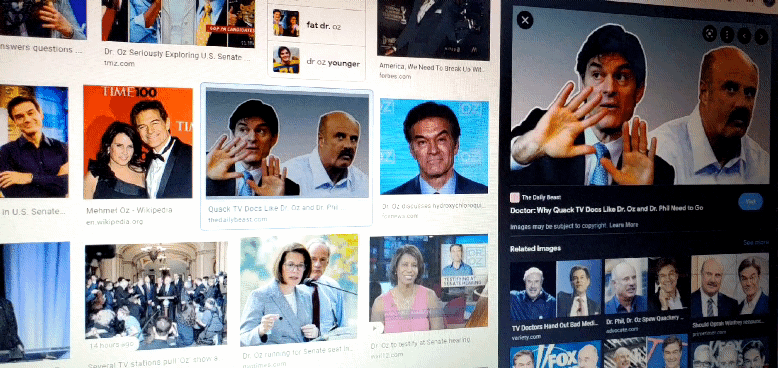Dr. Oz: A Celebrity Doctor's Dangerous Missteps in Politics
Written on
Chapter 1: The Rise of Dr. Oz
Dr. Mehmet Oz, a well-known figure in the realm of television medicine, is once again in the spotlight, this time as a candidate for the U.S. Senate in Pennsylvania. Many Republicans may still support him, but if you value science and rationality, I urge you to reconsider any support for this so-called “doctor.” His history is riddled with dubious claims and misleading information.
As I reflect on the world of television physicians, I can't help but feel a strong aversion. Learning that “Dr.” Phil barely qualifies as a real doctor opened my eyes to the exploitative nature of many in this field. It’s essential to approach their advice with skepticism—perhaps even with a hefty dose of skepticism, as extreme as it may sound.
A quick search online this morning revealed just how often Dr. Oz has faced scrutiny. A simple query for “Dr. Oz court case” yielded a plethora of alarming results.
Section 1.1: The Controversy Surrounding Dr. Oz
Dr. Oz is notorious for promoting questionable health advice. Here are eight significant instances where he has disseminated misleading or completely false information:
- Advocating for hydroxychloroquine as a treatment for COVID-19 despite unproven efficacy.
- Claiming raspberry ketones can facilitate fat loss, a claim that has only been marginally supported by research conducted on rats.
- Suggesting that astrological signs hold insights into health, a notion that starkly contrasts with scientifically-backed medical testing.
- Pushing green coffee extract as a miraculous weight-loss solution, which led to a humiliating public hearing.
- Misrepresenting the labeling of genetically-modified foods in other countries, including a false claim about their prevalence in Europe.
- Asserting that umckaloabo root extract effectively alleviates cold symptoms, despite a lack of scientific backing.
- Promoting lavender soap as a remedy for leg cramps, demonstrating a flimsy grasp on real medical science.
- Advising the use of strawberries and baking soda for dental hygiene, which fails to address plaque effectively.
These instances reflect a broader trend of misinformation that has characterized Oz's career. He has built a fortune on misleading the public, and now he seeks political power.

Section 1.2: Implications of His Senate Run
As Dr. Oz pursues a Senate seat, it's crucial to recognize the potential consequences of his political ambitions. His history of promoting dubious health solutions raises serious questions about his credibility. If he secures this position, his influence could further propagate harmful misinformation under the guise of authority.
Chapter 2: The Consequences of Misinformation
The implications of Dr. Oz's campaign are significant. His track record suggests a willingness to prioritize profit over genuine medical advice, which could have far-reaching effects on public health policy. Pennsylvania voters must be vigilant and informed as they approach the upcoming election.